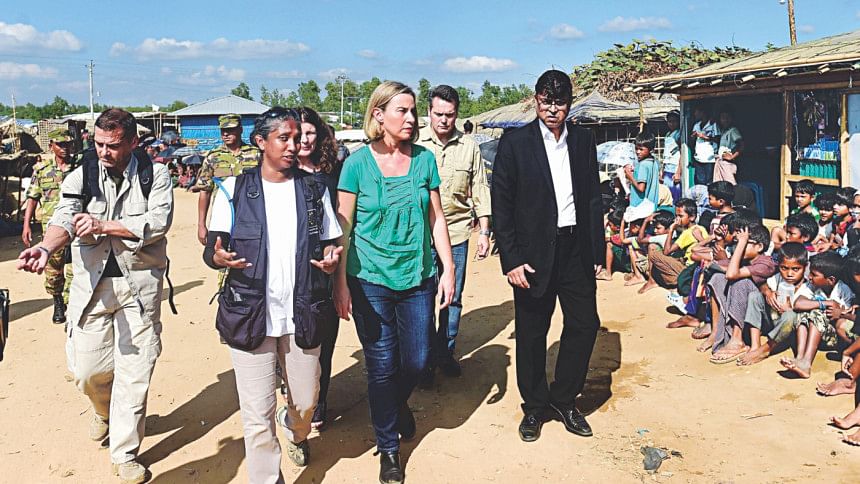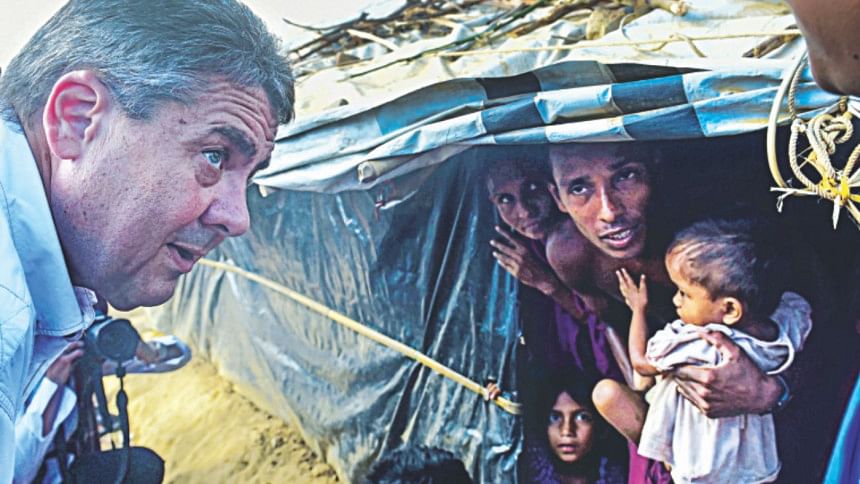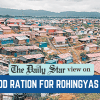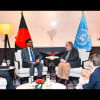Resolving Rohingya Crisis: Europe stands by Bangladesh

Germany, Sweden and the European Union yesterday extended their strong support to Bangladesh on the Rohingya issue.
They also highly appreciated Prime Minister Sheikh Hasina for her great humanitarian gesture of sheltering tens of thousands of forcibly displaced Rohingyas in Bangladesh, reports BSS.
The support and appreciation came when German Foreign Minister Sigmar Gabriel, Swedish Foreign Minister Margot Wallstrom and European Union High Representative and Vice-President Federica Mogherin separately called on her at the Gono Bhaban yesterday evening.
After the meetings, PM's Press Secretary Ihsanul Karim told reporters that Hasina discussed with them various aspects of the Rohingya crisis and said it would be difficult for Bangladesh to keep them for a long time.
The press secretary said the three expressed their grave concern over the atrocities on the Rohingyas in Myanmar.
"We admire your [Hasina] wisdom and humanitarian action on the Rohingya issue," the press secretary quoted the EU representative as saying.
Mogherin said she would discuss with the Myanmar leadership at different levels on Rohingya repatriation in the ASEM meeting to be held in Myanmar today.
Wallstrom said that international solidarity was needed on the repatriation of Rohingyas.
She said people across the globe expected Aung San Suu Kyi to be "proactive" in resolving the Rohingya crisis.
Wallstrom said she would visit Myanmar and encourage the government there to initiate repatriation of the Rohingyas.
The Swedish foreign minister agreed with the prime minister that the refugees should be rehabilitated in Myanmar by ensuring safety, security and dignity under the UN supervision.
Meanwhile, Japanese Foreign Minister Taro Kono has offered his country's help to repatriate the Rohingya population from Bangladesh.
EU Ambassador in Dhaka Rensje Teerink in a Facebook post said, "We had an excellent meeting with PM Sheikh Hasina to discuss the Rohingya crisis."
Hasina said the Rohingya issue is a huge challenge for Bangladesh and that her government has ensured safe drinking water and sanitation for them.
The biggest problem is now child birth among the Rohingyas, she said.
Hasina also renewed her call for immediate implementation of the Kofi Annan Commission's recommendations to resolve the Rohingya crisis. "They've [Myanmar] to agree and take back their nationals."
The European Union and Germany would give a "strong signal" for solving the Rohingya refugee crisis during the two-day Asia-Europe Meeting (ASEM) beginning in the Myanmar capital today.
"That's the reason we are here … to determine our role ahead of the summit with other colleagues from Japan, Sweden and the European Union. We are going to have discussions about the situation in Bangladesh in the ASEM summit," said Gabriel after visiting a Rohingya camp at Kutupalong of Ukhia in Cox's Bazar earlier in the day.
"It's unbelievable what is happening here," said Gabriel at the refugee camp where the Rohingyas are living in squalid and tiny camps, reports our Chittagong staff correspondent from Cox's Bazar.
The atrocities in Myanmar's Rakhine State forced over 620,000 Rohingyas to flee to Bangladesh since August 25. The UN termed it ethnic cleansing, while rights groups defined the violence as crimes against humanity and genocide and accused Myanmar security forces of burning Rohingya houses, killing hundreds of men and raping women.
UN member-states on November 16 urged the Myanmar authorities to end the military campaign against the Rohingyas in a resolution adopted despite opposition from China and Russia.

Gabriel said Germany is determined to be more engaged in providing more aid for the refugees and local communities in Cox's Bazar.
"But it's necessary that there will be strong signal from the ASEM summit, together with European Union, that we have to find a solution for the refugees to go back to their homes and to rebuild their lives," he said.
Lauding the generosity of Bangladesh and her people, Gabriel said, "Thank God there is no turbulence between the people hosting and the refugees."
State Minister for Foreign Affairs Shahriar Alam, who accompanied the foreign delegates, said they would put more pressure on Myanmar to take back the refugees in the upcoming ASEM summit, a political forum to enhance relations and various forms of cooperation between European and Asian countries.
He said the foreign delegates, along with the two countries, would look for a long-term solution to the crisis.
They would also ask countries to fulfil the pledges they made for emergency life-saving supplies for the Rohingya, Shahriar said.
Wallström, Kono and Mogherini also visited the refugee camps.
JAPAN EXPLAINS ITS STANCE
Japan abstained from voting on the UN resolution but it still supports Bangladesh and stands by it in its efforts to respond to the humanitarian needs and continuing dialogue with Myanmar to resolve the Rohingya crisis.
Abstention in voting does not mean Japan is opposing Bangladesh, Deputy Press Secretary Toshihide Ando of the Ministry of Foreign Affairs of Japan told a small group of reporters in Dhaka yesterday.
He said Japan shared its view that "further fact-finding would be needed in the Rakhine State. We think such fact-finding would not be effective unless it is undertaken in the manner acceptable to the government of Myanmar."
He also said Japan's comments on the draft resolution were not reflected in the final resolution that was adopted, which was the reason behind it abstaining from voting, reports our diplomatic correspondent.
Japanese Foreign Minister Tarō Kōno visited Rohingya camps and called on Hasina and Foreign Minister AH Mahmood Ali yesterday before departing for Myanmar, said Ando.
He said Kono conveyed to Mahmood that Japan supports Bangladesh's efforts for lasting solution, including the repatriation of displaced Rohingyas.
CANADIAN MINISTER TO VISIT
Canadian Minister of International Development Marie-Claude Bibeau will travel in Bangladesh tomorrow to witness the impact of the Rohingya refugee crisis and assess best ways for Canada to assist them.
During her visit, Bibeau will visit refugee settlements and host communities and meet humanitarian agencies and civil society groups to gain a deeper understanding of the needs on the ground, reports our diplomatic correspondent.

 For all latest news, follow The Daily Star's Google News channel.
For all latest news, follow The Daily Star's Google News channel. 








Comments